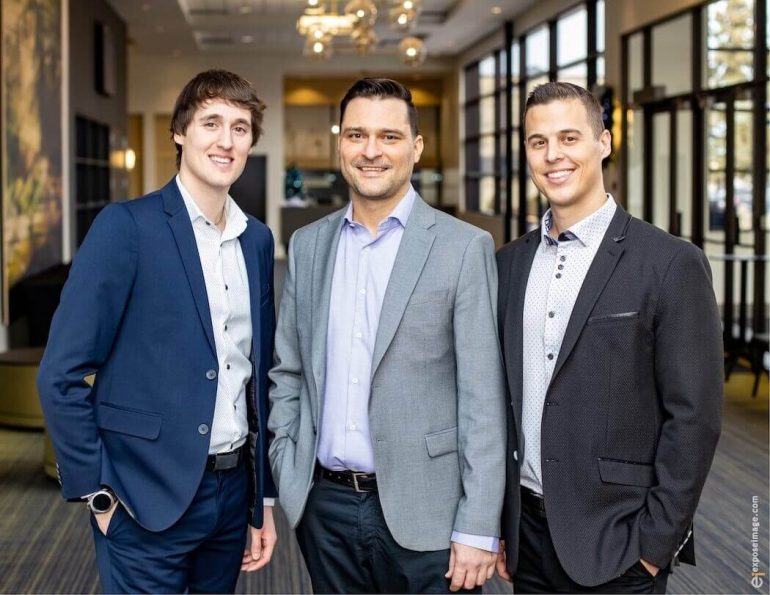Remote monitoring company GTX has been quietly growing in Victoriaville, Quebec, developing a number of successful subsidiary brands without raising any equity capital.
Across four brands, GTX has surpassed 360 employees and increased its revenue by 316 percent in the last few years, from $30 million two years ago to $125 million in 2020.
Now, the company is looking to build off that success and become a well-known Canadian tech giant, bringing its siloed companies under one brand: Vosker.
Across four brands, GTX has surpassed 360 employees and increased its revenue by 316 percent in the last few years, from $30 million two years ago to $125 million in 2020.
The initial brand, Spypoint was founded in 2004 by Yan Gagnon. He later created holding company GTX in 2018, alongside Jimmy Angers and Danny Angers. Over the years, the company has developed remote monitoring cameras that use artificial intelligence (AI) and internet of things (IoT) technologies to survey areas and provide customers with imagery and data. Vosker’s offerings include the cameras, the connectivity software platform, and an app that allows for viewing the activity caught on camera.
Its two industries of focus are construction site and wildlife monitoring, where the cameras can be used to monitor activity in a given area for security or leisure purposes.
It all began when Gagnon, the company’s CEO, decided to market surveillance cameras and quickly realized there was a lucrative market in hunting cameras. This led to the creation of the Spypoint brand.
Over the last 17 years, GTX became the holding company for four separate brands: Spypoint, which focuses on hunting cameras; Vosker, which sells security cameras; Kraken Lab, dedicated to product development and new technologies; and Zeniox, which was created when the company saw a surge in customers and needed to increase its customer service capacity.
Across all brands, the newly re-branded Vosker has reached half a million users and sold close to one million devices in nearly 50 countries.
Vosker achieved all this with its three founders retaining their equity in the holding company, raising debt rather than traditional venture capital.
“One thing we’re pretty proud about is the fact that we didn’t use the conventional way to finance,” Gagnon said in an interview. “So, we always reinvested the money that we have made in the past into the company just to be sure to not be too diluted. And this is something that I’ve heard is pretty rare when we’re arriving at this level of revenue.”
Gagnon told BetaKit the decision to bypass the traditional venture capital route was made by the trio of founders early on when they realized the opportunity they had to pull in significant revenue to sustain Vosker. The turn for the company came when it developed software and began selling that in addition to its hardware, and was able to secure recurring revenue.
Vosker’s 4X revenue increase was also buoyed by the company’s move into the e-commerce space. Around 2018, Vosker turned to Amazon partners and its own website to sell its hardware, software and app, to notable effect.
In addition to securing half a million users, which led to Vosker’s sustainable recurring revenue, Gagon said the company avoided the venture capital raise cycle by taking on debt capital rather than equity. Notably, Spypoint, which will be the only brand to remain independent following the re-brand to Vosker, raised $35 million in debt in 2020 from BDC Capital, Investissement Québec and Scotiabank.
Raising more capital, equity or debt, may not be out of the question for Vosker at its current stage. As Danny Angers told La Nouvelle last year, Vosker is eyeing acquisition opportunities in Canada and the United States and may look to raise some capital to support those efforts.
“The opportunity for us to change the way we’re set up was to make a one siloed company because we were becoming, with the growth, several silos … [and] if we want to compare to an Apple and Tesla one day, we know that those companies are putting forward that one silo structure,” Gagnon told BetaKit.
“So the repositioning … is to show that we’re a tech company, we’re not a specialist of the security market or the outdoor market,” the CEO added. “We’re a tech company and everything is driven by technology.”


